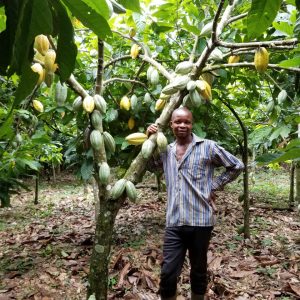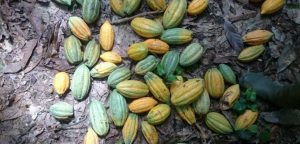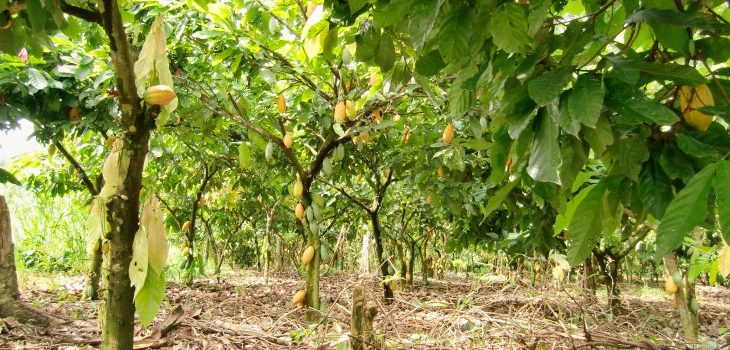Many of Serendipalm’s oil palm farmers also grow cocoa conventionally on separate fields. We saw an opportunity to help farmers shift their cocoa production to organic methods and started the process in 2013. Cocoa is a key commercial crop in Ghana. Unfortunately, dense planting and lack of pruning and thinning make cocoa trees easy targets for insects, causing severe losses and low yields. In response, the Ghana cocoa agency Cocobod issues free pesticides to farmers. This does not address the root causes of the pest infestation and exposes farmers and farmworkers to toxic substances.

To support farmers with their conversion to organic production we first supplied pyrethrum, a chrysanthemum-based pesticide accepted under organic rules. We also developed a recipe for a mild pesticide based on the seeds of the neem tree. Ultimately, more fundamental changes in cocoa farming are needed to reduce pest attacks and improve yields while using organic methods. We are training farmers in pruning their trees and thinning out densely planted plots. These steps are critical to improving the ventilation of cocoa orchards. Our long-term goal is to help farmers plant new plots using the concept of mixed “dynamic agroforestry”. Here, the shade-tolerant cocoa occupies the ground floor of a stratified forest, with oil palms, fruit and timber trees in their upper strata.

As with palm oil, the production of cocoa in Ghana and neighboring Ivory Coast is very controversial: excessive use of pesticides, child labor, illegal new plantings in protected forests, low profitability and low motivation among younger people to take up cocoa farming are all too common. But was is true for oil palm is also true for cocoa: what matters is not the plant itself but how it’s grown. Serendipalm is expanding its production of organic and fair trade cocoa into other parts of Ghana and hopes to become one of its exemplary producers.
